Kenneth Atchity's Blog, page 205
July 30, 2013
Awesomegang Interview - Where Awesome Readers Meet Awesome Wrters

by Vinny O'Hare
Tell us about yourself and how many books you have written.
At this point I’ve published over 20 books, and have a half dozen on the drawing board.
What is the name of your latest book and what inspired it?
The Messiah Matrix, a romantic thriller about the origins of Christianity, was inspired by my years as a student of the Roman classics and observations of the parallels between the Roman Catholic Church and the Roman Empire.
Do you have any unusual writing habits?
If writing with a stopwatch running (to make sure I do my hour a day) is unusual, well, then yes I do indeed.
What authors, or books have influenced you?
Virgil and Dante have been a huge influence, and Melville: “to write a mighty book one must have a mighty theme.” I think The Messiah Matrix, at the very least, has a mighty theme.
What are you working on now?
I’m working on a family memoir.
What is your best method or website when it comes to promoting your books?
It’s very hard to know the answer to this, but Facebook is my very favorite because it’s so user-friendly. Check out the Messiah Matrix Facebook page–and LIKE it please.
Do you have any advice for new authors?
Work a little every day, or a lot every day, but every single day; remembering the ancient poet Hesiod, who said, “If you put a little upon a little, soon it will become a lot.”
Embrace this career that allows for a lifetime of improvement. What other career can offer that?
What is the best advice you have ever heard?
Go for it.
What are you reading now?
I just finished reading a non-stop action sci fi thriller by Russian Sergei Yakimov, and hope to help get it published in the U.S.
What’s next for you as a writer?
I am thinking about another novel about the Vatican, a novel about the Millennial generation, in addition to the memoir and more nonfiction books for writers to go with my WRITE series.
What is your favorite book of all time?
Homer’s Odyssey.

Published on July 30, 2013 00:00
July 29, 2013
Why Marketing For Freelance Writers - By DR. Kenneth Atchity and Ridgely Goldsborough
24 hour Giveaway. Amazon
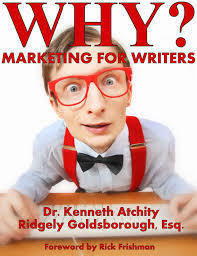
Why Marketing For Freelance Writers is a book
about a remarkably powerful way to attract, engage and connect with your
audience. The book was written with it's core focus being on how freelance
writers—including ghost writers--can be more effective in marketing their own work.
As always, it’s an honour to have the opportunity to pose questions to the people that managed to put pen to paper and outline the things that writers think about daily.
Kenneth, welcome.
Thanks, Nadine. It’s good to chat with you again.
Ken, most of our audience already know you well from all the books you have put out there giving insight to everyone that struggles to make their dreams a reality whether in writing or film. You created the book – WHY? Marketing for Freelance Writers - together with Ridgely Goldsborough. What made you decide to create such collaboration?
My old friend and former student Ridgely told me about the new marketing techniques his group have developed and asked me to write a book applying those techniques to writers.
How has writing changed over time?
Writing itself hasn’t changed since storytelling began in ancient cave times. It’s the physical techniques of writing and the delivery vehicles that have changed—from cuneiform styluses among the Babylonians to the stylus pad of today.
How has the need of writers changed?
Writers need audiences. That hasn’t changed. But methods for reaching audiences have become more challenging in direct proportion to the explosive global potential of even the simplest messages—like tweets.
How has marketing one’s writing changed?
Writers must now compete with hundreds of thousands of others with similar skills, but have a forum for the competition—the World Wide Web—that allows literary knights to joust 24/7 with their competitors.
If you could give writers a one sentence tip about what they need to do what would it be?
It’s not about what you do or how you do it that matters to your prospective client, it’s WHY you do it.
How did Ridgely Goldsborough contribute to the book?
Ridgely provided the theory, I was the scribe.
How has the market accepted it thus far?
We haven’t launched the book yet. This interview begins the launch. The book will be given away to your readers free from 7/29-8/3!
Who does this book target?
It targets everyone who writes for others.
What are the key elements to remember in marketing your work?
Key is knowing WHY you write, a discovery that will lead to a whole new dynamic motivation.
You have exclusive videos that writers can go and look at – where can they find these?
Best place to find my videos: kenatchity.blogspot.com and www.storymerchant.com
You have some great worksheets at the back of the book. My only question is once I have sat down and actually worked through them who will help me with constructing the guidelines of my ideas?
You can sign up right in the book for our guidance through the marketing process.
As a final – where to from here? What’s the next step?
For me, I’m launching a whole new series of books about writing… For you, figure out your WHY and communicate it to your entire network!
 Nadine Maritz ( formerly known as Cloete) was born in 1981 in the heart
Nadine Maritz ( formerly known as Cloete) was born in 1981 in the heart
of Johannesburg, South Africa’s City of Gold. A variety of influencing
factors and individuals has helped shape her journey towards writing
this her first novel.
Nadine's
Novel “My Addiction: My Gift; My Curse,” is a South African
contemporary fiction novel that reflects on the relatable day to day
livelihood of an Afrikaans vampire nurse that works in an old age home.
This is the first novel of a series.
http://my-addictionbooks.blogspot.com

Why Marketing For Freelance Writers is a book
about a remarkably powerful way to attract, engage and connect with your
audience. The book was written with it's core focus being on how freelance
writers—including ghost writers--can be more effective in marketing their own work.
As always, it’s an honour to have the opportunity to pose questions to the people that managed to put pen to paper and outline the things that writers think about daily.
Kenneth, welcome.
Thanks, Nadine. It’s good to chat with you again.
Ken, most of our audience already know you well from all the books you have put out there giving insight to everyone that struggles to make their dreams a reality whether in writing or film. You created the book – WHY? Marketing for Freelance Writers - together with Ridgely Goldsborough. What made you decide to create such collaboration?
My old friend and former student Ridgely told me about the new marketing techniques his group have developed and asked me to write a book applying those techniques to writers.
How has writing changed over time?
Writing itself hasn’t changed since storytelling began in ancient cave times. It’s the physical techniques of writing and the delivery vehicles that have changed—from cuneiform styluses among the Babylonians to the stylus pad of today.
How has the need of writers changed?
Writers need audiences. That hasn’t changed. But methods for reaching audiences have become more challenging in direct proportion to the explosive global potential of even the simplest messages—like tweets.
How has marketing one’s writing changed?
Writers must now compete with hundreds of thousands of others with similar skills, but have a forum for the competition—the World Wide Web—that allows literary knights to joust 24/7 with their competitors.
If you could give writers a one sentence tip about what they need to do what would it be?
It’s not about what you do or how you do it that matters to your prospective client, it’s WHY you do it.
How did Ridgely Goldsborough contribute to the book?
Ridgely provided the theory, I was the scribe.
How has the market accepted it thus far?
We haven’t launched the book yet. This interview begins the launch. The book will be given away to your readers free from 7/29-8/3!
Who does this book target?
It targets everyone who writes for others.
What are the key elements to remember in marketing your work?
Key is knowing WHY you write, a discovery that will lead to a whole new dynamic motivation.
You have exclusive videos that writers can go and look at – where can they find these?
Best place to find my videos: kenatchity.blogspot.com and www.storymerchant.com
You have some great worksheets at the back of the book. My only question is once I have sat down and actually worked through them who will help me with constructing the guidelines of my ideas?
You can sign up right in the book for our guidance through the marketing process.
As a final – where to from here? What’s the next step?
For me, I’m launching a whole new series of books about writing… For you, figure out your WHY and communicate it to your entire network!
 Nadine Maritz ( formerly known as Cloete) was born in 1981 in the heart
Nadine Maritz ( formerly known as Cloete) was born in 1981 in the heart of Johannesburg, South Africa’s City of Gold. A variety of influencing
factors and individuals has helped shape her journey towards writing
this her first novel.
Nadine's
Novel “My Addiction: My Gift; My Curse,” is a South African
contemporary fiction novel that reflects on the relatable day to day
livelihood of an Afrikaans vampire nurse that works in an old age home.
This is the first novel of a series.
http://my-addictionbooks.blogspot.com

Published on July 29, 2013 00:00
July 26, 2013
Guest Post: Deadline Dread by Dennis Palumbo
Is a writing deadline friend or foe?

Someone once said, "The problem with being a writer is that it's like always having homework due."
Which is as good a starting point as any for a discussion of deadlines, a fact of life in every Hollywood writer's existence. Whether a screenwriter on assignment, a member of a TV series' writing staff, or a struggling writer who's promised his or her agent a terrific new spec pilot, everyone's faced a deadline at some point.
But not every writer views a deadline in the same way. Like most "facts of life," this aspect of writing holds a different meaning for different people. And most of these meanings were formed years ago, embedded in a writer's childhood experiences concerning ideas of expectation and performance.
For many of my creative patients, a deadline is viewed with dread—the same pressure to "deliver the goods" that they experienced in school when homework was due. Or a big final exam was to be given. Or some try-out in team sports. The same fears of failure, the same concern that they would somehow fall short of their own and others' expectations.
For some, then and now, a deadline represents the date at which their long-held belief in their own inadequacy and unworthiness is finally confirmed. For these writers, the approaching deadline is like the ticking clock in High Noon, the oncoming asteroid in Armageddon, the hairpin curve up ahead on the tracks in Unstoppable. In short, not a good thing.
We're all familiar with this "deadline dread," and the stereotypical way that most writers cope: namely, procrastination—which can take the form of household chores, distracting social activities, or just anxious fretting. Experienced procrastinators can spend hours "researching" on the Internet, or re-writing again and again the stuff they've managed to produce so far.
The point is, the dread is the same: the potential danger of shaming self-exposure. The fear that once written and handed in, the finished product exposes us as inadequate, untalented or unentitled.
On the other hand, there's a smaller group among my patients for whom a deadline, despite its attendant anxiety, is an absolute must. These writers feel they need the prod of a deadline, or else they'd never finish the work (or even start it!).
While this may seem an acceptable state of affairs, I think it's a good idea to investigate a bit further. Often, there's a kind of "negative reinforcement" in this line of thinking, the meaning being that the writer feels him—or herself to be a lazy, unmotivated slacker who needs to be whipped into compliant productivity by the authority of an imposed deadline.
As one patient of mine, a veteran screenwriter, confessed, "Without a deadline to meet, I'd go all to hell... I mean, I'd just screw around, not accomplishing anything..."
A noted TV sitcom writer in my practice put it this way: "Deadlines just put a big gun to my head... if I don't get the damned thing in on time, BANG!..."
There's a pleasant way to spend the next 20 or 30 years of one's life!
Regardless of how you view deadlines, they offer an opportunity to explore and maybe temper the self-critical, self-shaming ways you might be viewing yourself. When the next deadline for a writing project looms, take some time to investigate your feelings about it. Look under the almost automatic response of anxiety and dread to see what kind of message you're sending yourself.
For example, do you feel the same way with every deadline, or does it change depending on the type of project, the person you're delivering it to, your perceived (or their explicit) level of expectation? How are these ways of experiencing deadlines similar to the ways you felt as a child in your family, a student at school? Whose authority and judgment evoked these feelings the most? Do you experience your project's potential reader—the producer, agent, studio exec, etc.—in some similar way?
By exploring and illuminating these issues, writers can sometimes get the perspective needed to ease the grip that "deadline dread" has on them. Moreover, they can develop coping strategies based on these understandings.
For instance, if you use deadlines as a motivator, but suffer anxiety, you can gain some measure of control by setting a series of private, personal deadlines for yourself—points at which you not only see where you are on the project but also take some time to assess your feelings about it, identify various creative and emotional concerns, and re-group. In other words, become your own authority regarding your writing process, instead of merely being vulnerable to that imposed from outside.
Let's face it. As long as there are TV and film writers—and, hopefully, writing assignments—there'll be deadlines. How we deal with them, how we weave them into the fabric of our working lives, is up to us.
In fact, as I once suggested to a writer/director patient, "You could keep a journal about it... maybe jot down the issues you think deadlines evoke for you..."
"Can I bring it in to show you?" he asked.
"Sure. Our next session, if you'd like."
"Great." He grinned. "A deadline."

Someone once said, "The problem with being a writer is that it's like always having homework due."
Which is as good a starting point as any for a discussion of deadlines, a fact of life in every Hollywood writer's existence. Whether a screenwriter on assignment, a member of a TV series' writing staff, or a struggling writer who's promised his or her agent a terrific new spec pilot, everyone's faced a deadline at some point.
But not every writer views a deadline in the same way. Like most "facts of life," this aspect of writing holds a different meaning for different people. And most of these meanings were formed years ago, embedded in a writer's childhood experiences concerning ideas of expectation and performance.
For many of my creative patients, a deadline is viewed with dread—the same pressure to "deliver the goods" that they experienced in school when homework was due. Or a big final exam was to be given. Or some try-out in team sports. The same fears of failure, the same concern that they would somehow fall short of their own and others' expectations.
For some, then and now, a deadline represents the date at which their long-held belief in their own inadequacy and unworthiness is finally confirmed. For these writers, the approaching deadline is like the ticking clock in High Noon, the oncoming asteroid in Armageddon, the hairpin curve up ahead on the tracks in Unstoppable. In short, not a good thing.
We're all familiar with this "deadline dread," and the stereotypical way that most writers cope: namely, procrastination—which can take the form of household chores, distracting social activities, or just anxious fretting. Experienced procrastinators can spend hours "researching" on the Internet, or re-writing again and again the stuff they've managed to produce so far.
The point is, the dread is the same: the potential danger of shaming self-exposure. The fear that once written and handed in, the finished product exposes us as inadequate, untalented or unentitled.
On the other hand, there's a smaller group among my patients for whom a deadline, despite its attendant anxiety, is an absolute must. These writers feel they need the prod of a deadline, or else they'd never finish the work (or even start it!).
While this may seem an acceptable state of affairs, I think it's a good idea to investigate a bit further. Often, there's a kind of "negative reinforcement" in this line of thinking, the meaning being that the writer feels him—or herself to be a lazy, unmotivated slacker who needs to be whipped into compliant productivity by the authority of an imposed deadline.
As one patient of mine, a veteran screenwriter, confessed, "Without a deadline to meet, I'd go all to hell... I mean, I'd just screw around, not accomplishing anything..."
A noted TV sitcom writer in my practice put it this way: "Deadlines just put a big gun to my head... if I don't get the damned thing in on time, BANG!..."
There's a pleasant way to spend the next 20 or 30 years of one's life!
Regardless of how you view deadlines, they offer an opportunity to explore and maybe temper the self-critical, self-shaming ways you might be viewing yourself. When the next deadline for a writing project looms, take some time to investigate your feelings about it. Look under the almost automatic response of anxiety and dread to see what kind of message you're sending yourself.
For example, do you feel the same way with every deadline, or does it change depending on the type of project, the person you're delivering it to, your perceived (or their explicit) level of expectation? How are these ways of experiencing deadlines similar to the ways you felt as a child in your family, a student at school? Whose authority and judgment evoked these feelings the most? Do you experience your project's potential reader—the producer, agent, studio exec, etc.—in some similar way?
By exploring and illuminating these issues, writers can sometimes get the perspective needed to ease the grip that "deadline dread" has on them. Moreover, they can develop coping strategies based on these understandings.
For instance, if you use deadlines as a motivator, but suffer anxiety, you can gain some measure of control by setting a series of private, personal deadlines for yourself—points at which you not only see where you are on the project but also take some time to assess your feelings about it, identify various creative and emotional concerns, and re-group. In other words, become your own authority regarding your writing process, instead of merely being vulnerable to that imposed from outside.
Let's face it. As long as there are TV and film writers—and, hopefully, writing assignments—there'll be deadlines. How we deal with them, how we weave them into the fabric of our working lives, is up to us.
In fact, as I once suggested to a writer/director patient, "You could keep a journal about it... maybe jot down the issues you think deadlines evoke for you..."
"Can I bring it in to show you?" he asked.
"Sure. Our next session, if you'd like."
"Great." He grinned. "A deadline."

Published on July 26, 2013 00:00
July 25, 2013
Things that make you go hmmmm....
Top Amazon Sellers "Dinosaur Thrillers"
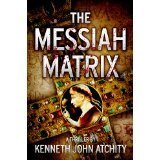
The Messiah Matrix by Kenneth John Atchity (May 1, 2012) - Kindle eBook
$3.99
Kindle Purchase
Borrow this book for free on Kindle
Auto-delivered wirelessly
(99)
Prime members read for free Join Amazon Prime
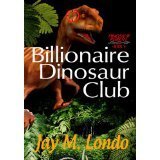
Billionaire Dinosaur Club (Dinosaur Rebirth) by Jay M Londo and Catherine Morgan (Jul 8, 2013) - Kindle eBook
$2.99
Kindle Purchase
Borrow this book for free on Kindle
Auto-delivered wirelessly
Prime members read for free Join Amazon Prime
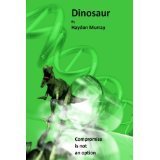
Dinosaur by Haydon Murray (Apr 18, 2013) - Kindle eBook
$1.99
Kindle Edition
Auto-delivered wirelessly
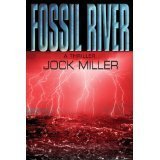
Fossil River by Jock Miller (May 21, 2012) - Kindle eBook
$3.99
Kindle Purchase
Borrow this book for free on Kindle
Auto-delivered wirelessly
(53)
Prime members read for free Join Amazon Prime


The Messiah Matrix by Kenneth John Atchity (May 1, 2012) - Kindle eBook
$3.99
Kindle Purchase
Borrow this book for free on Kindle
Auto-delivered wirelessly
(99)
Prime members read for free Join Amazon Prime

Billionaire Dinosaur Club (Dinosaur Rebirth) by Jay M Londo and Catherine Morgan (Jul 8, 2013) - Kindle eBook
$2.99
Kindle Purchase
Borrow this book for free on Kindle
Auto-delivered wirelessly
Prime members read for free Join Amazon Prime

Dinosaur by Haydon Murray (Apr 18, 2013) - Kindle eBook
$1.99
Kindle Edition
Auto-delivered wirelessly

Fossil River by Jock Miller (May 21, 2012) - Kindle eBook
$3.99
Kindle Purchase
Borrow this book for free on Kindle
Auto-delivered wirelessly
(53)
Prime members read for free Join Amazon Prime

Published on July 25, 2013 00:00
July 23, 2013
Listen to the Total Mind Success Podcast on How To Quit Your Day Job and Live Out Your Dreams!
I share tips on how you can escape the 9 - 5 drudge and live a happier, more fulfilling life.
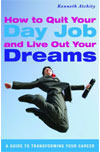
How to Quit Your Day Job and Live Out Your Dreams: A Guide to Transforming Your Career
by Kenneth Atchity




How to Quit Your Day Job and Live Out Your Dreams: A Guide to Transforming Your Career
by Kenneth Atchity



Published on July 23, 2013 00:00
July 22, 2013
Guest Post: Memo to Screenwriters #2: Like E.L. James, You Can Change the Game by Nancy Nigrosh

In the 1960s, Marshall McLuhan emphasized the value of message and the medium the message uses over its creator. This idea flies in the face of the modern era’s printed book as the ultimate expression of the writer, who toiled in glorified isolation as the big publishing house distributed it magically across the universe. McLuhan went on to predict a wireless world, where all messages are accessed instantly to and from a collective brain--what we now call mobile media.
Ever since authors shed the fantasy of a big publishing house model, many midlist and novice writers have opted to write speculative books delivered to reading tablets--print on demand--once they realized that they had the distinct advantage of having a product they solely owned that could be bought directly online. Now writers manage not only all creative decisions but also their own metadata, including ISBN number and price.
The most successful among them, "Fifty Shades of Grey" author E.L. James, strategized with aggressive genre mastery. She identified and directly engaged with present and future readers in social media hangouts. She insured that the upload to Amazon, iBookstore, Barnes & Noble, Kobo and Sony Reader could truly pay off. Big publishing houses had long overlooked such popular fiction genres as romance and science fiction. Now big houses along with the public (and movie studios), scout for bestselling indie authors.
Which prompts the question: what can screenwriters learn from this?
Flashback: Hollywood, circa 2001. Gutenberg almost left the building. Talent agencies began to scan screenplays into computers, making obsolete their script library (that also served production and casting). This was first done in the name of efficiency to save storage space. Printed copies went out as usual, delivered by hand. Then, after reliable email attachments came into general use, clients' revised drafts could be distributed with an easy click.
But issues of control arose when it came to spec scripts. Reverting to type, the market marched backwards by sending sealed hard copies to buyers’ homes after hours and/or watermarking screenplays (so that pirated copies could be traced to a leaker) to accommodate time-sensitive, high stakes spec submissions. No thanks to the collective brain, many scripts were negatively profiled on the net via the tracking boards, and dismissed almost immediately. Though the market was fading, specs still held strong as an essential career strategy.
Truth is, the shark, like Oprah’s couch, had been thoroughly jumped. Around 2008, a certain major studio dropped the compulsory rain or shine weekend read. I recall a stunned colleague announcing at a staff meeting, “They’ve decided from now on to be more selective.”
It never occurred to anyone to heed McLuhan’s prediction of electronic (vs. physical) delivery as its own high-impact message by posting a script on a private site with a password. Or trying the unheard of idea of posting a property MLS style with specs and stats that a prospective buyer’s gut could go with or without. First launched in email in 2004 as a free annual development survey, Franklin Leonard's The Black List now offers a gated community tour for producers, directors and executives eager to identify the status of popular scripts idling in studio development or possibly overlooked (or looked over) gems.
A few weeks ago, the WGAW sanctioned use of the site solely devoted to promoting professional screenwriters’ work, searchable not only by name and title but by detailed genre, logline, budget and attachments as well as rated by reviewers. In the shadow of crashing tentpoles, opportunity has never knocked louder. Yet, how often have screenwriters solely described their work as a "calling card" that speaks for itself? By insisting on a virtual blind taste test, the writer’s identity elicits little more detail than a name followed by the question of who their agent is. Without a game a name is just a name.
Contrast that with what happens when a book is enthusiastically recommended to anyone. The question of "who wrote it?" paints a creative persona with details about gender, race, nationality, childhood, life story, life span, regional experience, class, politics. Expressed appreciation might extend to the book’s authentic atmosphere crafted by a mastery of language, character, genre cred, ear for dialogue, and clarity of message that all together earn that writer the reputation for ability to dial directly into universal truths.
Any kind of writer -- dead and buried -- or alive and writing, can "like" McLuhan, "friend" Gutenberg and become easy to discover via personal websites, genre driven blogs, mashup videos and show up on you-name-it social media to attract not only readers but loyal admirers. Why not screenwriters?

Published on July 22, 2013 00:00
July 20, 2013
Tech Consultant Kickstarts a Film Career
Lila French ’99, MNG ’99 lives an impressive double life; by night, she’s the lead actress, director, and producer of a Kickstarter-funded independent film adaptation of Leonard Melfi’s 1965 play Birdbath. By day, French puts her computer science master’s degree—which she earned alongside her bachelor’s in just four years—to work as a software development consultant.
How does French juggle her dual careers in tech and the arts? In a Huffington Post profile piece, she explains how her undergraduate years at MIT taught her resilience.

“Every week we’d get some homework assignment or project that seemed
impossible at first, but step by step it would be figured out,” says
French. “The film was like that. I’d never made a film before, but I
knew step by step I’d figure out what I needed to.”
Velma, the character French plays in Birdbath, shares that
quality. “I always admired her resilience,” says French, who had planned
at first to only act in the film and find a more experienced director.
Soon, French realized she had her own vision of Melfi’s story about an
encounter between two strangers, and she wanted to bring that
interpretation to the screen herself.
This past weekend, Birdbath debuted at the Laemmle Royal Theater in Los Angeles, CA. The MIT Club of SoCal hosted one of the six screenings of French’s 40-minute film. Keep an eye on Birdbath‘s website or contact Lila French for information about future screenings and film festival plans.
Reposted From A Slice of MIT Alumni Association

Published on July 20, 2013 10:58
July 19, 2013
ARTIST ASSOCIATE DOMINGO ZAPATA
Published on July 19, 2013 00:00
July 17, 2013
Guest Blog: The Watchdog: When a close friend is killed, there’s no explaining her death — only her life by Dave Lieber
 A loaded moving van sits outside. Inside, where Penny Terk lived alone, a couple of lamps are on the floor. Rugs are rolled up. Bookshelves are empty. There’s no sign that a champion for people lived — and died — in this Oak Cliff house.
A loaded moving van sits outside. Inside, where Penny Terk lived alone, a couple of lamps are on the floor. Rugs are rolled up. Bookshelves are empty. There’s no sign that a champion for people lived — and died — in this Oak Cliff house.My friend Penny Terk was killed inside her home a week ago in a burglary gone very wrong.
Someone she may have known from the neighborhood killed her three different ways, through shooting, strangulation and beating.
Immediately after, a man tried to sell items she owned on the street and to an area pawn shop, police say. That man, a career criminal with more than 20 years spent in state prison, was arrested for burglary. The homicide investigation continues.
Now, as I come to pay my respects to the two adult children of my friend, I hear a voice echoing in the emptied house. The voice says the same thing over and over.
“For this evil, evil, evil person to come into our neighborhood to do this,” the voice says. “Evil! Nothing but pure, pure evil.”
The speaker is neighbor Edrena Holmes-Fahmi, come to pay her respects, too. She’s in shock, like everyone else who knew Penny Terk, the opposite of evil.
“She was such a kind person,” Holmes-Fahmi says. “She helped people. She had this way about her.”
The grotesque details of her death could overshadow her life. I can’t let that happen. Penny Terk, a 73-year-old with smiling eyes and unlimited energy, was something else. She had a mission in life unlike most others. She wanted people to laugh, learn and love. And she actually pulled it off.
Turns out Dallas and surrounding cities have more women’s book review clubs than any city in America. By my count, there are about 75 of them. The women in these clubs don’t read books and discuss them. Not that kind of book club.
At these clubs, “reviewers” stand on stage and discuss, actually act out through storytelling, a book of their choice. If a club meets 10 times a year, the club needs 10 different speakers. That’s where Penny came in.
These clubs, with names such as Idlewives Book Club, Amores Librorum and Country Gals, don’t have websites, so it’s difficult to find them. The best way for speakers to connect is through a website dedicated to matching speakers with clubs. That site is pennyterk.com.
Penny charged performers for a place on her website, a reasonable fee considering the exposure to groups that could find entertainers no other way. But she also became a cheerleader. She made her speakers, including me, feel appreciated.
That’s how I know Penny. I love these clubs filled with laughter and delight. I talk about books I’ve written and met thousands of people this way.
Rose-Mary Rumbley, the popular longtime queen of the book review circuit, says of Penny: “She was an innovator, one who could think of new ideas to help others. She contributed a lot to the world of entertainment at these women’s clubs.”
Once, in gratitude, I offered to take Penny to lunch. Pick your favorite restaurant, I said. She insisted we go to Grandy’s. Really? Yes, she said. So there we sat with our chicken-fried steaks and plastic forks. She wasn’t the least bit pretentious.
A week from now, Penny had planned to host her fourth “Summertime Showcase.” A couple dozen speakers, women mostly but a few men, talk for five minutes each and preview their program for the 2013-14 review season. The audience includes members from several dozen women’s clubs. It’s like a baseball draft for book lovers. My job was to be master of ceremonies.
In the kitchen freezer, Penny’s daughter, Eve Holder, finds brownies baked from scratch and homemade peach cobbler. Her mom baked these for the showcase.
Her children, Holder, 44, and Jason Terk, 46, say they had no idea how many people her mother helped laugh, learn and love. But they’re hearing from all quarters now.
“I was shocked at how many lives she’s impacted,” the daughter says.
The man arrested for the burglary, Gary Anthony Sanders, 50, is being held in lieu of $250,000 bail. A year ago, he was released from prison after serving 20 years. His crimes were eight counts of aggravated robbery. After his release, he lived with his mother, a friend of Penny’s, a block from Penny’s house. The mother sometimes worked for Penny around her house. Penny knew the son.
Sanders’ parole expires in 2032. If he’s convicted of burglary alone, he will likely return to prison for the rest of his life.
He was caught because his fingerprints were found on a water bottle on Penny’s couch, police say. A neighbor reported that he was trying to sell lawn equipment and jewelry on the street. Video captured him at the pawn shop.
“This was not a criminal mastermind,” Jason Terk says.
Police are waiting for results from a forensic analysis of physical evidence before proceeding with possible murder charges.
The neighbor is right: It is pure, pure evil. But when a close friend, one so uniquely talented, is killed like this, there’s no explaining the darkness of her death, only the brightness of her life.
Marina Trahan Martinez contributed to this report.
Follow Dave Lieber on Twitter at @Dave Lieber.
Reposted from watchdog@dallasnews.com

Published on July 17, 2013 00:00
July 15, 2013
Guest Post: To Publish or To Self-Publish: That is the Question Brandy Miller
Traditional publishing has its perks. You get the backing of a graphic design department, a marketing department, and the benefits of working with people who know the book industry. You have someone in your corner when you are fighting for shelf placement in bookstores, or trying to protect your intellectual rights, and you have the benefit of working with people who know the ins and outs of the process that bookstores go through to pick and choose the books they carry.
However, unlike in days gone by, you are not likely to see large advances paid out to you. The days of being treated like a king or queen are pretty well gone. Publishing houses are willing to take risks on a limited number of new titles, but they also aren’t going to throw the weight of their marketing budget behind an unknown author unless they are very, very certain that author can produce the sales. Your share of the multi-million dollar marketing budget may be a tiny sliver of what bigger name authors receive, and a lot of that can be eaten up by pre-press marketing to ensure big sales the first day, week, and month. Traditional publishing houses are also slower to pay royalties (usually just twice a year) and the money you make on a $10 book may be just 8 cents each after everybody else has gotten their cut.
Self-Publishing bypasses the waiting lists and allows you to skip the rejection letters completely. You get to keep every penny of the royalties past whatever share of it Amazon or Barnes & Noble’s gets for their part, and you don’t have to fight to get your book out from under a contract that isn’t going so well. You also get paid monthly for your book sales rather than twice a year. However, the downside of self-publishing is that the buck stops with you. You are responsible for absolutely every aspect of producing, marketing, and selling your book. You are responsible for creating a website, developing an audience, editing your book, creating the cover, protecting and defending your intellectual property rights, and making the contacts you’ll need to make to start getting your book noticed in a highly competitive market. Self-publishing can be rewarding, but it can also be a nightmare, too. It can consume so much of your time that it makes finding the time to write more books, an important key to making a sustainable income, very difficult. The choice is yours to make.
About the Author:
Brandy Miller is a Creativity Consultant for Creative Technology Services in Elko, Nevada. She specializes in helping people find creative solutions to everyday problems. She is also the 40 Day Writer, known for her ability to produce quality content at lightning-fast speeds. She has published three books in the last six months, all geared toward helping aspiring authors write more content with higher quality at a faster pace. When she isn’t writing for pay, writing for her own blogs, or writing her next book, she loves to paint, draw, sew, design fabrics, and read books. She graduated in May 2006 with an A.S. in Elementary Education and studied both graphic design and game art and design through the Art Institute Online. She worked for 6 years as a sales service representative for Harcourt School Publishers, and for 2 years in the Marketing Department of Verizon Wireless before leaving to start her own company. She won several honorable mentions for her writing in high school and has won NaNoWriMo on 3 separate occasions.
Reposted From Book Daily
However, unlike in days gone by, you are not likely to see large advances paid out to you. The days of being treated like a king or queen are pretty well gone. Publishing houses are willing to take risks on a limited number of new titles, but they also aren’t going to throw the weight of their marketing budget behind an unknown author unless they are very, very certain that author can produce the sales. Your share of the multi-million dollar marketing budget may be a tiny sliver of what bigger name authors receive, and a lot of that can be eaten up by pre-press marketing to ensure big sales the first day, week, and month. Traditional publishing houses are also slower to pay royalties (usually just twice a year) and the money you make on a $10 book may be just 8 cents each after everybody else has gotten their cut.
Self-Publishing bypasses the waiting lists and allows you to skip the rejection letters completely. You get to keep every penny of the royalties past whatever share of it Amazon or Barnes & Noble’s gets for their part, and you don’t have to fight to get your book out from under a contract that isn’t going so well. You also get paid monthly for your book sales rather than twice a year. However, the downside of self-publishing is that the buck stops with you. You are responsible for absolutely every aspect of producing, marketing, and selling your book. You are responsible for creating a website, developing an audience, editing your book, creating the cover, protecting and defending your intellectual property rights, and making the contacts you’ll need to make to start getting your book noticed in a highly competitive market. Self-publishing can be rewarding, but it can also be a nightmare, too. It can consume so much of your time that it makes finding the time to write more books, an important key to making a sustainable income, very difficult. The choice is yours to make.
About the Author:
Brandy Miller is a Creativity Consultant for Creative Technology Services in Elko, Nevada. She specializes in helping people find creative solutions to everyday problems. She is also the 40 Day Writer, known for her ability to produce quality content at lightning-fast speeds. She has published three books in the last six months, all geared toward helping aspiring authors write more content with higher quality at a faster pace. When she isn’t writing for pay, writing for her own blogs, or writing her next book, she loves to paint, draw, sew, design fabrics, and read books. She graduated in May 2006 with an A.S. in Elementary Education and studied both graphic design and game art and design through the Art Institute Online. She worked for 6 years as a sales service representative for Harcourt School Publishers, and for 2 years in the Marketing Department of Verizon Wireless before leaving to start her own company. She won several honorable mentions for her writing in high school and has won NaNoWriMo on 3 separate occasions.
Reposted From Book Daily

Published on July 15, 2013 00:00





